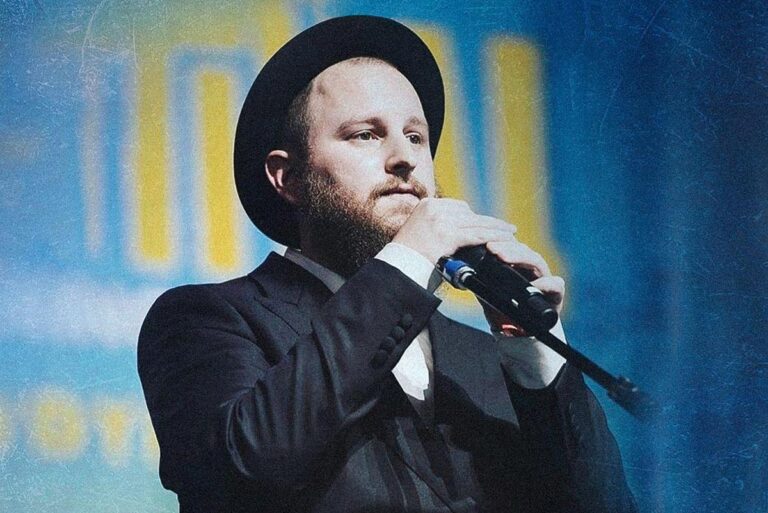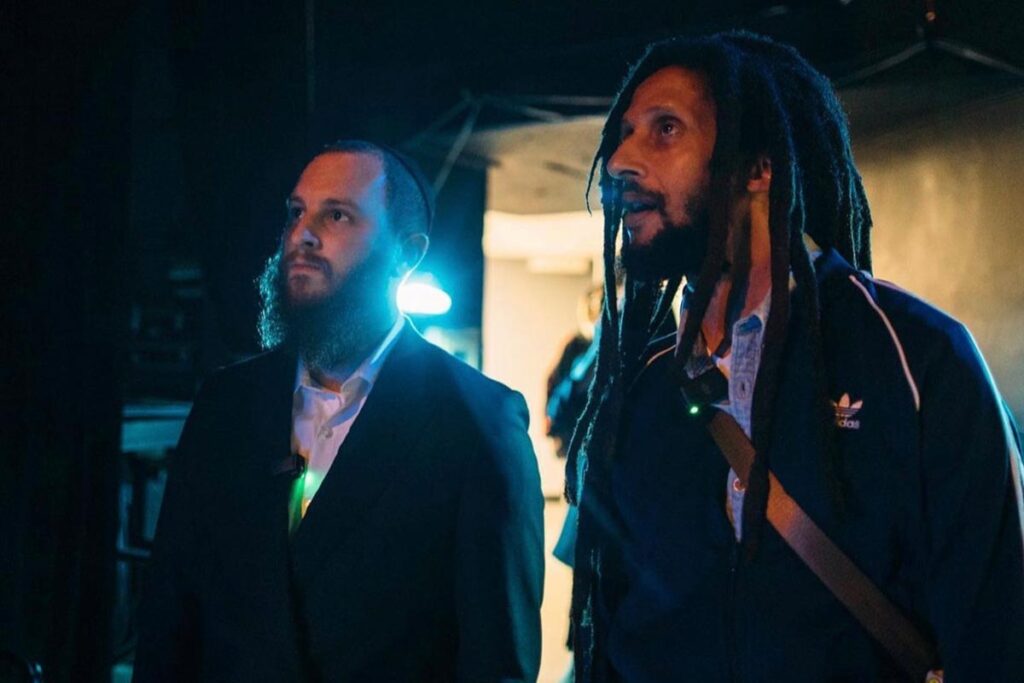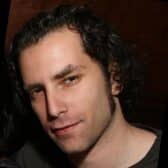
Editor’s note: This article is part of our three-part series on Jewish rappers. Check out our profiles on Nissim Black and Kosha Dillz.
Moshe Reuven has 1.9 million Instagram followers, became the fourth Hasidic artist to sign with a major record label, and had a standout collaboration with Julian Marley.
Now an ordained rabbi, Reuven wasn’t observant and didn’t keep kosher growing up. But a pivotal moment in high school dramatically changed the course of his life.
He’d attended several parties where drinking and smoking were common. He believes that as a prank or by accident, someone spiked his drink with a large amount of promethazine or codeine.
“I tasted my drink, and immediately knew something was wrong,” Reuven said. “I couldn’t move normally and laid down on the ground. I felt like I might pass away. I thought God was showing me something…some ultimatum that I had to live a meaningful life or else it would be wasted.”
This incident ignited a quest for meaning and sowed the seeds of his curiosity in Judaism. “I started to question why I was here. There was an awakening,” he said.

As a point guard for his basketball team at Cooper City High School, and a fan of the Miami Heat, living in South Florida, hip-hop heavily influenced him, with artists like Lil Wayne on his favorites list.
Often bored in class, Reuven took to writing rap verses, passing them on to classmates, and he started to become known.
Three years earlier, at his bar mitzvah, a classmate complimented his chanting of the haftarah. Many assumed he was proficient in Hebrew, though in reality, he memorized it.
During his time at the University of Central Florida, a visit to the Chabad House profoundly impacted him, steering him toward a religious path. He started his spiritual journey with small gestures like not going out on Friday nights.
He joined a fraternity due to peer pressure, but he soon dropped out. Over time, he became fully observant of Shabbat and kept kosher. While his family’s initial reactions were mixed, they eventually supported his choices. His brother teased him about his growing beard.
“This was supposed to be the best time of my life. Everyone knew me as the life of the party and wondered what happened to me. But I had to change. It wasn’t easy,” he said.
Reuven’s musical ambitions also underwent a metamorphosis. He’d already abandoned marijuana use and distanced himself from negative influences.
“I reached a point where I no longer wanted to listen to Lil Wayne,” he said. Hip-hop had defined much of his youth, but he wasn’t sure how to express his evolving self musically.
Recalling his high school years, he mentioned listening to three of Matisyahu’s songs on his brother’s iPod: “King Without A Crown,” “Jerusalem,” and “Time of Your Song.”
“Someone gave me a CD of like 73 songs of Matisyahu and I listened only to that CD for a year,” he said. I was like, ‘OK, this is something that can help me get from where I was to where I am going.’”
He studied at Aish Hatorah in Jerusalem and at a yeshiva in Tzfat, where he immersed himself in Hasidut and teachings of Kabbalah.
He used to go by the name of Marc, but embraced the name of Moshe. His last name is Sheradsky. Furthering his religious studies, he attended the Rabbinical College of America-Lubavitch in Morriston, New Jersey, and was ordained as a rabbi in 2021. While passionate about expressing his spirituality through his music, he said he also might want to lead a congregation in the future.
A matchmaker introduced him to a woman studying in a seminary in Crown Heights, Brooklyn. They dated for three months, got engaged, and were married three months later. His breakout song, “You Are Not Alone,” which included 3D visuals in his music video, soared to No. 22 on the Billboard charts.
The co-founder of Create Music Group took notice of Reuven’s talents, signing him and placing him in an esteemed group of Hasidic artists who have signed with big labels — Matisyahu, Alex Clare (known for “Too Close”) and Shulem Lemmer, whose songs range from cantorial to classics. While Reuven initially feared his Hasidic appearance might hurt him commercially, he believes it eventually bolstered it.
Beyond music, Reuven also had a leading position in three successful startups, including serving as the CEO of Wedu. His accomplishments earned him a place on the Forbes’ 30 Under 30 and Rolling Stone’s Global Artists Spotlight.
Reuven’s collaboration with Julian Marley was born from shared ideals. Drawing inspiration from the isolation induced by the pandemic and the notion that God is always with us, Reuven approached Bob Marley’s son. Marley said he knew Reuven had good values, and Marley noted Reuven’s music had “good vibes.”
Their resulting track, “Say,” carries a poignant message — emphasizing the importance of unity over divisive factors, including politics, Reuven said.
His song, “Holding Up My Hands,” is inspired by the story of Moses, where during battle, the victory of the Israelites was assured, when Moses kept his hands raised. He said it is also about the universal desire for divine intervention.
Reuven, who has written for Forbes and Entrepreneur Magazine, shared advice for members of Gen Z who are thinking of starting their own business: be careful who you take money from.
“Everyone wants to raise millions,” Reuven said. “But sometimes, it’s better to take $15,000 from someone you trust than $1 million from someone you can’t count on,” he said. “You also have to remember that there will be ups and downs, and you can’t get too emotional.”
In every field, Reuven believes in carving one’s own path without getting caught up in comparisons.
“In music, you can get a lot of love all at once, but you know that can fade away,” he said. “Some people started saying I might be the next Matisyahu. I felt like, I don’t want to feel defeated before I start because he’s too incredible. But I do want to be a voice for Jews, so it was flattering.”
He said he did get nervous before some shows and was thrilled to meet Matisyahu backstage — they both performed at the Chosen Comedy Festival in Miami in December 2022.
He said he amassed a large social media following by collaborating with celebrities. While he has encountered some “Free Palestine” comments, he said he hasn’t experienced much overt antisemitism online. At times, in college, he engaged in online debates about Judaism.
“If you’re gonna fight with people online, it’s often a waste of time,” he said. “Once in a while, you might find it especially important. But if I spend all my time arguing with Bella Hadid about what she posts about Israel, I won’t have time for anything else.”
In 2021, Hadid, a model and actress, posted that Israel is not a country and shared a cartoon stating that Israel is engaged in ethnic cleansing and apartheid.
Reuven said he was a big fan of Kanye West, now called Ye, growing up. He believes West’s pain from losing his family and frustration with music deals led him to wrongly scapegoat Jews.
“He managed to destroy one of the most successful brands in history,” said Reuven, adding that he doesn’t listen to Ye’s music anymore.
When asked about guidance for aspiring artists, he emphasized that the world has already seen the greatest rock stars of all time: “It’s not that we need better music. We need a better purpose, lyrics, messaging and vibes behind the music.”
To what does he attribute his success?
“There is hard work, but everything is from Hashem,” he said. “There’s love and there’s hate, and I wasn’t expecting all of this. And of course, there’s the critical eyes on you. But I know I’m blessed. I have a lot to live up to. I still have a lot more to achieve.”
Originally Published Sep 21, 2023 03:46PM EDT
